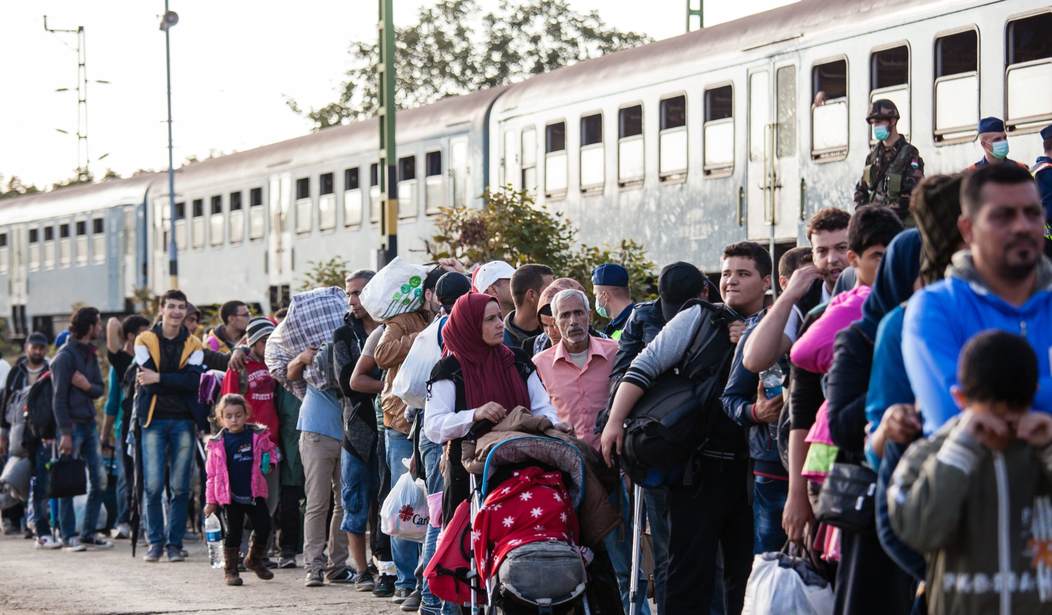WASHINGTON – A “substantial” number of Syrian refugee applicants seeking admission to the U.S. have been rejected for reasons including terrorism and national security concerns, PJM has learned.
“Literally hundreds of individuals from different countries, including hundreds of individuals from Syria, have had their admission to the United States denied because of information that was found in these databases,” United States Citizenship and Immigration Services (USCIS) Director León Rodríguez said on a conference call Friday.
The joint screening process includes USCIS, the State Department, the Department of Homeland Security, law enforcement and intelligence community partners.
According to Rodríguez, a “substantial number” of individuals from Syria were denied admission or “placed on hold” because of concerns that arose during the interview process.
Rodríguez was not able to provide the specific number of applicants who were denied for national security reasons. However, he told reporters on the call that the approval rate for Syrian refugees is 80 percent and the denial rate is 7 percent, while the rest are put on hold.
UCSIS clarified that the rates are “cumulative” and cover Syrian refugees interviewed by USCIS between 2011 and July 2016.
“Just speaking to the Syrian case, you know, hundreds, I wouldn’t be able to put a specific number on it now, but hundreds have been denied. There are even larger numbers on hold,” Rodríguez said.
Some Syrian refugee applicants have been denied on a “credibility basis” because there are “concerns about the accounts they are giving” during the interview process.
PJM asked if some of the applicants were denied specifically due to terrorism or national security concerns.
“Yes,” Rodríguez replied.
In fiscal year 2016, 8,000 Syrian refugees have been “cleared for admission.” Assistant Secretary of State for Population, Refugees, and Migration Anne Richard told reporters that 99 percent of the admitted refugees are Muslim. Richard was asked what percentage of the refugees admitted to the U.S. cited “religious persecution” as the reason for leaving their home country.
“I don’t have that breakdown for you,” she said.
The Obama administration committed to allowing 10,000 Syrian refugees into the U.S. out of 85,000 overall in FY 2016, up from 2,000 in 2015. The administration has requested 100,000 refugee arrivals overall in the FY 2017 budget, according to the Department of Health and Human Services.
Democratic presidential candidate Hillary Clinton supports admitting 65,000 Syrian refugees, which represents about a 550 percent increase over current levels. She told CBS last September that she wanted to “really emphasize some of those who are most vulnerable, a lot of the persecuted religious minorities, including Christians, and some who have been brutalized, like the Yazidi women.”
Republican presidential candidate Donald Trump opposes admitting more refugees, citing his “America First” foreign policy and the concern that Islamic terrorists could use the refugee process to enter the U.S. “It’s a very large group of people and its only getting bigger and if [Clinton] gets in, it will be massive and we won’t even have a country anymore,” he told Fox in June. “We will be afraid to walk outside.”
HHS Refugee Resettlement Director Robert Carey said refugees are eligible for Medicaid and other public benefits once they arrive here.
“Once a refugee arrives in the U.S. they are eligible to access the same benefits as American citizens who are here legally, including temporary aid to new families, Medicaid, SSI, and SNAP,” he said.
Carey said the length of time refugees are able to use public benefits varies. In some cases, he said, refugees can extend the “refugee cash assistance” up to eight months while “others may be eligible for mainstream benefits if they fit the qualifications.”
USCIS charges thousands of dollars in fees for legal immigrant applications but does not charge refugees any fees. Foreigners seeking certain visas or green cards must also prove financial support so they will not become a “public charge.”
PJM asked Rodríguez why legal immigrants are held to different financial standards than refugee applicants.
“The fact is refugees are refugees because they are often coming out of war-torn countries or countries devastated in some other way,” Rodríguez responded.
Rodríguez added that Syrian refugees, in particular, are usually deprived of an education for their children in their home country.
“More typically, individuals do not have the economic wherewithal. It’s also, frankly, a statutory decision that was made. We do not have the authority to charge any kind of fees to refugees. It’s not a legal authority we have,” he said.









Join the conversation as a VIP Member